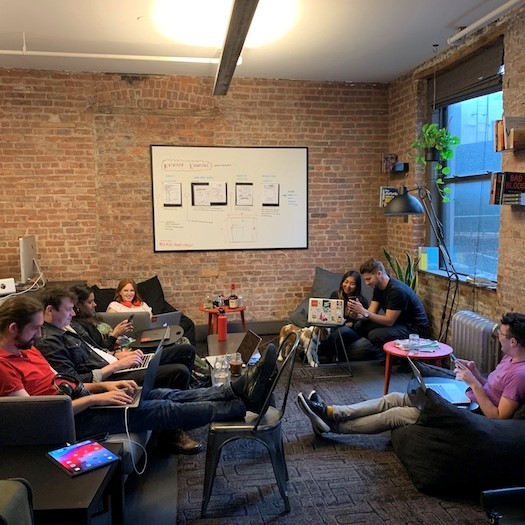To provide the best experiences, we use technologies like cookies to store and/or access device information. Consenting to these technologies will allow us to process data such as browsing behaviour or unique IDs on this site. Not consenting or withdrawing consent, may adversely affect certain features and functions.
The technical storage or access is strictly necessary for the legitimate purpose of enabling the use of a specific service explicitly requested by the subscriber or user, or for the sole purpose of carrying out the transmission of a communication over an electronic communications network.
The technical storage or access is necessary for the legitimate purpose of storing preferences that are not requested by the subscriber or user.
The technical storage or access that is used exclusively for statistical purposes.
The technical storage or access that is used exclusively for anonymous statistical purposes. Without a subpoena, voluntary compliance on the part of your Internet Service Provider, or additional records from a third party, information stored or retrieved for this purpose alone cannot usually be used to identify you.
The technical storage or access is required to create user profiles to send advertising, or to track the user on a website or across several websites for similar marketing purposes.
 Two new studies suggest that the failure to keep workers equipped with the latest technology is having a huge impact on their productivity and causing them to waste large amounts of time. According to the first piece of research from tech provider Insight, UK office workers waste 1.8 billion working hours every year because the outdated technology they’re given isn’t good enough to meet their needs. (more…)
Two new studies suggest that the failure to keep workers equipped with the latest technology is having a huge impact on their productivity and causing them to waste large amounts of time. According to the first piece of research from tech provider Insight, UK office workers waste 1.8 billion working hours every year because the outdated technology they’re given isn’t good enough to meet their needs. (more…)














 Most US workers prefer to spend some time in an office (83 percent) over fully working from home, according to
Most US workers prefer to spend some time in an office (83 percent) over fully working from home, according to 




 Over a third of respondents (36 percent) to a new survey report they are commuting for more than 90 minutes a day; yet despite a high demand for employer provisions to help alleviate the stress of the commute such as flexible or remote working and season ticket loans, 43 percent of employees stated that these were not currently offered by their employer. The Commuter Survey from Office Space in Town also claims that among the top commuting complaints were: lengthy journeys (32 percent); overcrowding (27 percent) and delays and frequent cancellations (26.01 percent). With the survey also revealing 75 percent take the commute into account when making their employment decisions, there is a lot that employers could be doing to minimise the negative impact on employee attraction and retention.
Over a third of respondents (36 percent) to a new survey report they are commuting for more than 90 minutes a day; yet despite a high demand for employer provisions to help alleviate the stress of the commute such as flexible or remote working and season ticket loans, 43 percent of employees stated that these were not currently offered by their employer. The Commuter Survey from Office Space in Town also claims that among the top commuting complaints were: lengthy journeys (32 percent); overcrowding (27 percent) and delays and frequent cancellations (26.01 percent). With the survey also revealing 75 percent take the commute into account when making their employment decisions, there is a lot that employers could be doing to minimise the negative impact on employee attraction and retention.









July 23, 2019
Office design should take account of the quality of interactions as well as quantity
by Jonathan Hindle • Comment, Workplace design
(more…)